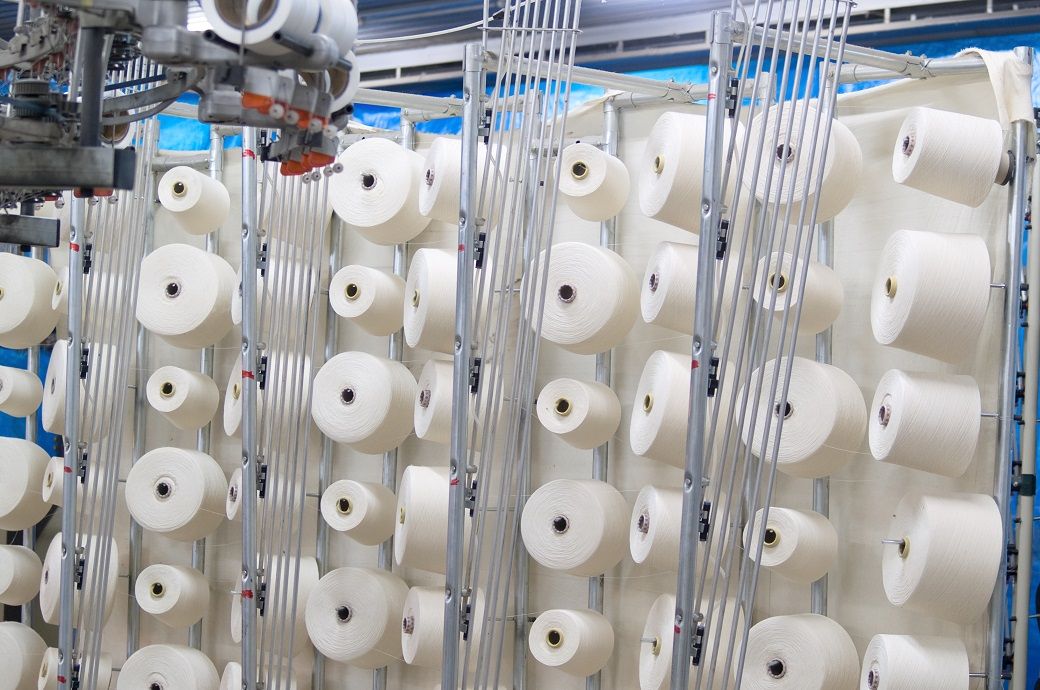
The Ludhiana market reported a drop in cotton yarn prices, with a reduction of ₹3 per kg. The demand from the downstream industry remained sluggish. But there is potential for support from Chinese export orders for cotton yarn in the days to come. Gulshan Jain, a trader from the Ludhiana market, told Fibre2Fashion, “There were reports about cotton yarn export orders from China. Several mills have managed to secure orders from Chinese buyers. They purchase cotton yarn in line with the increase in ICE cotton prices.” In Ludhiana, the 30-count cotton combed yarn sold at ₹255-265 per kg (GST inclusive), while the 20 and 25-count combed yarn traded at ₹245-250 per kg and ₹250-255 per kg respectively. Carded yarn of 30-count was noted at ₹235-245 per kg, according to Fibre2Fashion’s market insight tool TexPro.
In the Delhi market, the cotton yarn prices remained steady. The market sentiment was weaker due to poor demand from the consumer industry. A trader from the Delhi market told F2F, “Weaving and finishing activities may be affected in north India due to rains. Some areas of Ludhiana, which house several dyeing units, were forced to close as the nearby drainage system flooded. This could negatively impact market sentiments as the weaving industry could further slow down after disruptions in the processing industry.”
The 30-count combed yarn traded at ₹260-262 per kg (GST extra), with the 40-count combed trading at ₹290-292 per kg in Delhi. The 30-count carded traded at ₹232-235 per kg and the 40-count carded at ₹262-265 per kg, as per TexPro.
The recycled yarn market in Panipat did not show any significant changes, except for a slight ease in cotton comber. Recycled yarn prices remained at previous levels. A two-day holiday each week at the spinning mills resulted in reduced cotton comber consumption, leading to a decrease of ₹4 per kg. Yet, the prices for recycled yarn remained stable in the market.
In Panipat, 10s recycled PC yarn (grey) was traded at ₹77-82 per kg (GST paid). Other varieties and counts were noted at 10s recycled PC yarn (black) at ₹50-54 per kg, 20s recycled PC yarn (grey) at ₹92-97 per kg and 30s recycled PC yarn (grey) at ₹135-145 per kg. Comber prices were hovering at ₹116-118 per kg. Recycled polyester fibre (PET bottle fibre) was noted at ₹70-72 per kg.
North Indian cotton prices were steady due to limited buying from spinners. Traders suggested that the current crop is ending, reducing arrival to negligible levels. Ginners are selling cotton from their stocks. The estimated arrival of cotton was around 800 bales of 170 kg in the north India region. The natural fibre was traded at ₹5,825-5,925 per maund of 37.2 kg in Punjab, ₹5,625-5,725 per maund in Haryana and ₹5,925-6,050 per maund in upper Rajasthan and at ₹54,500-56,000 per candy of 356 kg in lower Rajasthan.
The new crop will arrive in the first week of September in the north Indian market if the weather remains favourable. Recent floods and excessive rains have not affected north India's cotton crop. Instead, the rains provided much-needed moisture to the crop. However, traders expressed slight concern as late rains affected the crop in the previous year, causing damage.
ALCHEMPro News Desk (KUL)
Receive daily prices and market insights straight to your inbox. Subscribe to AlchemPro Weekly!